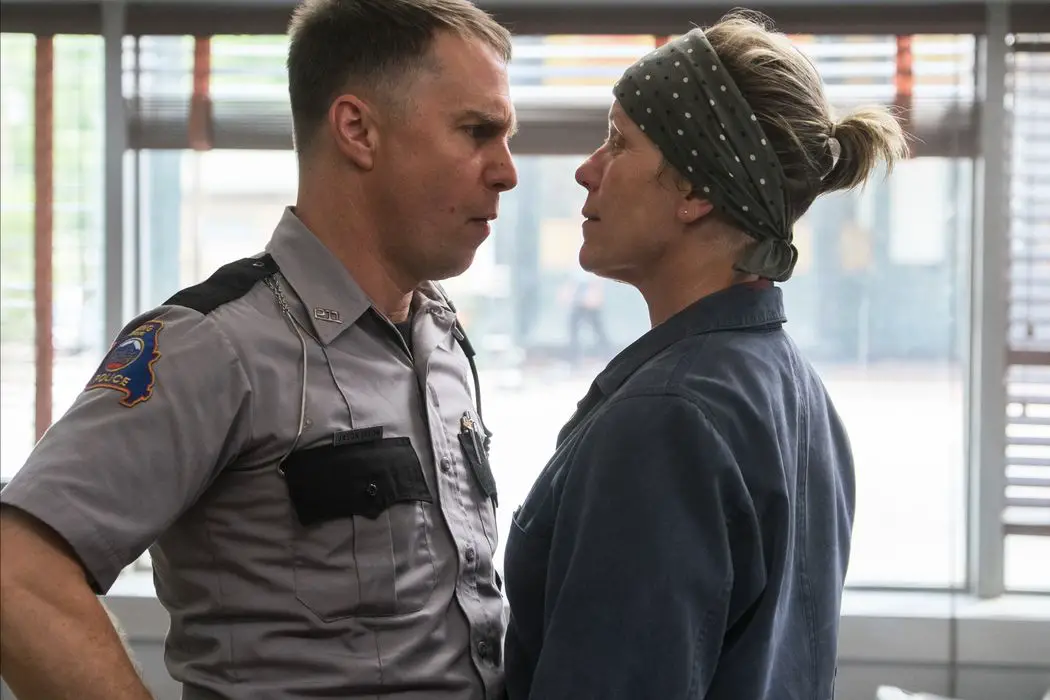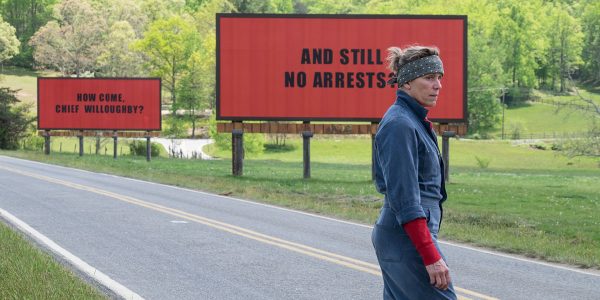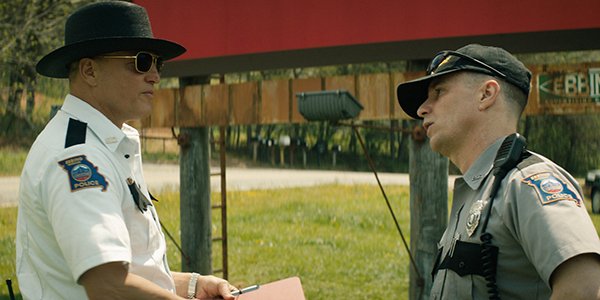THREE BILLBOARDS, Rotten Tomatoes & A Call For Diversity

Midwesterner, movie lover, cinnamon enthusiast.
The third feature from Martin McDonagh, Three Billboards Outside Ebbing, Missouri, enraged me. During its runtime, my emotions ranged from annoyed, to flabbergasted, to outright seething. I was only expecting an enjoyable, if slight, Coen Bros. facsimile, but instead got two hours of centrist-right provocation fit to be shown by your local Blue Lives Matter chapter.
Films have upset me before, but Three Billboards had a way of agitating me in a new and foreign way. It’s a film that irresponsibly creates equal footing between the volatile anger of a mother grieving the under-investigated rape and death of her daughter and a dweeby policeman who suddenly feels kind of bad about torturing black folks. Asking an audience to have empathy for a racist, violent policeman and a town that is complicit in his actions was a bridge too far for me.
Afterwards, seeing its 94 (now 93) percent approval rating from critics on RottenTomatoes.com was bewildering. It was confounding to think that the majority of critics found McDonagh’s point of view not only digestible, but favorable.
When searching for people that shared my intense feelings about Three Billboards, I found that every negative review, in part, echoed my issues with it. Though it wasn’t the overwhelming chorus of 94 percent from critics, this small consensus made me feel less insane about my reaction to McDonagh’s third feature. These weren’t “It just wasn’t for me” negative reviews, but people who were intent on keeping McDonagh accountable for his problematic portrayal of gender, race and violence.
A Critical Discourse

The Ringer’s K. Austin Collins had this to say:
What’s obscure, in these contradictions, is McDonagh’s endgame. Is there someone out there who believes cops can’t die of cancer or have a sense of humor? Because Three Billboards is the kind of movie to want to milk that seeming contradiction in terms—cop on the one hand, human on the other—for more than it’s worth. The problem with most redemption narratives, besides the fact their emotional range seems calculated to win awards, is that they bask in the seeming paradoxes of their premise: When you’re literally the worst, it’s counterintuitive for us to see you in any other light. So you give a torturer disguised as a cop a heart of bronze, if not quite gold, and on the flip side, you give a grieving mother an anarchic streak. Rather than give his characters ideas that complicate our sense of who they are — ideas about justice, punishment, fairness, even redemption — McDonagh keeps riffing on the same preordained arcs. It’s entertaining in the moment, but by the end, the movie verges on false equivalencies I can’t really forgive. As one character spirals downward, another ascends. They meet somewhere in a vague, indeterminate, and sort of nonsensical middle. It feels like ambiguity, but rather than reveal moral truth, it merely exemplifies McDonagh’s clever engineering.
April Wolfe, for LA Weekly, offered the following:
Three Billboards seems to ask audiences to forgive and forget wrongs such as police violence, domestic abuse and sexual assault without demonstrating a full understanding of the centuries-long toll these crimes have taken on victims in real life. In some ways, watching this film is like reading those alt-right fashion profiles of Richard Spencer that insisted we overlook his campaign of quiet terror and find common ground with him. Nope.
On NPR’s podcast, “Pop Culture Happy Hour,” the group talk about the frustration of the redemption arc of Rockwell’s policeman, the purported misplacing of grief and anger by McDormand’s Mildred, the odd treatment of peripheral minority characters and McDonagh’s choice between the types of violence he decides to keep off-screen versus those he allows us to see. Linda Holmes specifically talks about how the film centers on Mildred realizing the consequences of her anger and grief, rather than a humanistic understanding of where she’s coming from, and how this is juxtaposed with the redemption narrative of a racist, violent policeman.

NPR’s Gene Demby admitted to having a similarly astonished reaction to RottenTomatoes.com’s 94 percent. And he offered a smart, simple solution. Despite perennial debates, I don’t think the problem necessarily lies with RottenTomatoes.com; it’s just an aggregator — it’s a tool that takes a modicum of literacy to interpret.
The bigger issue is in the pool from which RottenTomatoes.com is aggregating. There’s an overwhelming majority of white male critics. This isn’t to suggest white dudes writing about film don’t have anything to offer, or aren’t intelligent, but part of reading RottenTomatoes.com is understanding that you are getting a percentage that is largely representative of one type of voice — a voice that is culturally privileged. Demby’s solution has to do with wanting popular aggregators to be a representation of a more diverse set of critics.
“If you have a critical establishment that has more women and more brown people in prominent critical positions, than the 94 percent that this has on RottenTomatoes.com is not there,” Demby says, speaking to the types of violence that need to be taken more seriously on screen. And, as Holmes points out, that is not to say that all women or all brown people would agree, but a more diverse set of critics is more likely to see films like Three Billboards through a different lens — one that keeps representations of violence against minorities more accountable.
An Instant Relic
One of the film’s champions was Thrillist’s executive entertainment editor, Matt Patches, who voiced his opinion on the podcast “Fighting In The War Room.” He found it an at-times hilarious and fascinating portrait of violence, calling it a potent microcosm of “the world we’re living in today.”
Speaking on the film’s racist cop, he said Three Billboards isn’t a film about forgiveness, but, drawing a parallel to the New York Times’ recent opinion piece on a white nationalist, that it’s “exposing nastiness on all sides of the line” and that it’s “important to understand where people come from.” When his co-hosts bring up our reality of a persistent state of police violence against black people and sexual violence against women as an argument against being able to comfortably palate the film, Patches faults them for bringing our current context into their reading of Rockwell’s policeman.
I would argue that Three Billboards can’t be separated from the sociopolitical discourse. In Michael Ryan and Douglas Kellner’s book, Camera Politica, they say the following:
Films transcode the discourses of social life into cinematic narratives. Rather than reflect a reality external to the film medium, films execute a transfer from one discursive field to another. As a result, films themselves become a part of that broader cultural system of representations that construct social reality. That construction occurs in part through the internalization of representations.
Whether it aims to or not, art reflects, crystallizes and becomes a part of our cultural consciousness. McDonagh’s film is an internalization of how we treat policemen who inflict brutality against black people. As is often beared out through our judicial system, our country considers the interiority of racist, violent policemen far more than their victims. As products of popular culture, films have a responsibility, on some level, to progress discourses of change. This is especially true when you are playing with story elements at the forefront of the cultural conversation. Art is political and should be treated as such. Films don’t exist in a vacuum and our reaction to them can say a lot about us.

Remember Crash? The film that captured the hearts of white guilt-riddled Americans in 2005 and won an Oscar for Best Picture at the 2006 Academy Awards? Although a completely different film with a completely different point of view on American race relations, it’s a film that I’ve heard multiple times from Three Billboards dissenters. One of which was Demby, who said Crash was the last film to make him this upset.
The fact that Crash was so heartily praised is now colloquially referenced as an embarrassment. That Three Billboards is being recognized by the film crit cognoscenti as one of the best, most salient films of 2017 will undoubtedly look like an embarrassment years from now. My assumption from the similar critical reaction between these two films is that the cultural makeup of said cognoscenti has probably not changed in any significant way in the past dozen years.
The Treatment of Women
Even if the state’s persistent violence against black people wasn’t such a “hot issue” at the moment, Three Billboards fails on the basic level of failing to prioritize understanding the anger of a grieving mother. In fact, there are a host of other problems with the film’s treatment of women. Inkoo Kang nails all of them in her review for Slate:
The age and attractiveness difference between 56-year-old Harrelson and 36-year-old Abbie Cornish, who’s costumed like a J. Crew model, is substantial and distracting. At least Cornish isn’t asked to be both eye candy and a punching bag. Such is the fate of Samara Weaving’s 19-year-old Penelope, whose reaction to watching her older boyfriend choke his ex-wife, while his son holds a knife to his dad’s neck, is an empty-headed smile and a matter-of-fact request to use the bathroom. Later, in a scene when Mildred finally gives her blessing to the May–December couple, Penelope asks whether the sport with the horses, about which she’s currently reading a book, is called polo or polio. I’d call the character sitcomish, but that’s insulting toward sitcoms. The sign store’s secretary (Kerry Condon) is likewise revealed as a beautiful idiot.
Penelope is around Angela’s age, but Mildred leaves the teenager dating a man she knows to be violent without a single warning. The shot of McDormand walking away from the bewildered but relieved couple in a restaurant is “cool,” I guess, but the abdication of any responsibility toward another woman who might be in the same dangers she faced is demoralizing—and McDonagh doesn’t know it. The lack of relatable female characters, combined with the ethical indifference toward violence against women, makes Three Billboards already feel like a relic.
You know what else feels like a relic? Crash.
There are many glaring issues with Three Billboards and the hive of primarily white male critics who either fail to recognize these issues or are unwilling to interrogate a film on the social reality with which it exists — presumably because these are issues willfully tangential to many of the lives of American white males — make a referendum on the racial and gender makeup of film’s critical establishment absolutely necessary.
This is a much more important issue than how RottenTomatoes.com is ruining the industry by employing a binary of good and bad quality. With a more diverse cast from which to cull from, our aggregators will reflect a more nuanced set of voices. And films like Three Billboards will be held more accountable for the representations its writer-director has internalized.
How do you feel about the controversial nature of Three Billboards?
Does content like this matter to you?
Become a Member and support film journalism. Unlock access to all of Film Inquiry`s great articles. Join a community of like-minded readers who are passionate about cinema - get access to our private members Network, give back to independent filmmakers, and more.













